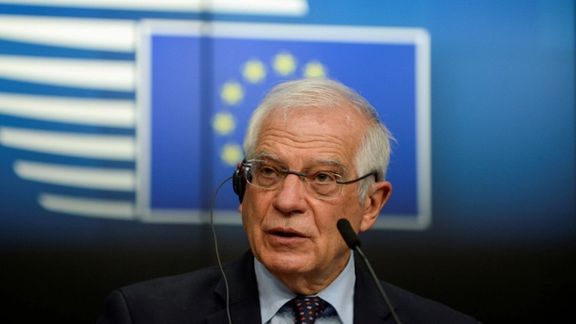Europe Ponders Fresh Sanctions On Iran

No specifics as yet have emerged over new measures against Iran the European Union is set to impose at a foreign ministers’ meeting in Luxemburg Monday.

No specifics as yet have emerged over new measures against Iran the European Union is set to impose at a foreign ministers’ meeting in Luxemburg Monday.
Although the ministers’ agenda is focused on the Russia-Ukraine crisis, EU relations with China, and November’s ‘Cop 27’ United Nations Climate Change Conference in Egypt, European Commission chief Ursula von der Leyen said Wednesday it was “time to sanction those [in Iran] responsible…for the repression of women.”
French foreign minister Catherine Colonna said last week the EU was considering asset freezes and travel bans. Agreement on any measures would require unanimous agreement from the EU’s 27 member states.
Josep Borrell, the EU foreign policy chief said October 5 that Europe was considering “all the options at our disposal, including restrictive measures, to address the killing of Mahsa Amini and the way Iranian security forces have been responding to the demonstrations.” Borrell tweeted October 6 that he had discussed with Iran’s foreign minister Hossein Amir-Abdollahian the case of Amini, who died September 16 in disputed circumstances after she was detained by Tehran ‘morality police.’
The United States, Canada, and the United Kingdom have already sanctioned Iran’s morality police and designated named senior commanders in both the morality police and general police force. Canada has banned 10,000 members of Iran’s Revolutionary Guard Corps from entering the country.
‘Action Plan on Human Rights’
The EU, along with the UK, lifted energy and financial sanctions against Iran when Tehran agreed with world powers the 2015 nuclear agreement, the JCPOA (Joint Comprehensive Plan of Action). But when the US left the agreement in 2018 and threatened punitive action against third parties dealing with Iran, European firms, including energy majors Total and Shell and car-makers, Renault and Daimler, withdrew from Tehran.
The EU has maintained a range of sanctions against named Iranian individuals and entities over military technology, nuclear-related transfers, as well as “restrictive measures in view of the human rights situation in Iran” and Tehran’s involvement in the war in Syria.
Committed by its ‘Action Plan on Human Rights and Democracy 2020-2024’ to “further advancing universal values for all,” the EU has imposed sanctions on China, Eritrea, Libya, North Korea, South Sudan, and Russia over alleged human rights violations. It also implements United Nations sanctions.
The EU, like the US administration of President Joe Biden, has argued that efforts to revive the JCPOA should be kept distinct from other issues including Iran’s regional links or its reaction to internal unrest. Amir-Abdollahian tweeted Tuesday, after speaking to France’s Colonna by phone, that “violence & terror should be confronted” and that Tehran would “reciprocate if EU restrictive measures applied.”